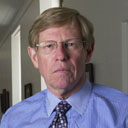Tony Mauro
Tony Mauro, based in Washington, covers the U.S. Supreme Court. A lead writer for ALM's Supreme Court Brief, Tony focuses on the court's history and traditions, appellate advocacy and the SCOTUS cases that matter most to business litigators. Contact him at [email protected]. On Twitter: @Tonymauro
March 01, 2005 | Law.com
Released for Good BehaviorEderal judges started the new year with a gift from the U.S. Supreme Court: more freedom to set sentences than they've enjoyed in two decades. Judges lost much of their sentencing discretion when Congress enacted mandatory federal guidelines in 1984. But in January the Supreme Court ruled that in order to be constitutional, the guidelines can only be advisory. As a result, judges are no longer bound by the minimum and maximum sentences once called for under the federal system.
By Tony Mauro
5 minute read
December 13, 2006 | National Law Journal
Scalia, Breyer Debate Unanimity on the High CourtMore than once recently, Chief Justice John Roberts Jr. has said that one of his goals is to achieve greater unanimity on the Supreme Court -- even if it means deciding cases narrowly. But last week it became clear that the Court is not even unanimous on whether Roberts' goal is realistic or worth pursuing. During a public debate, Justices Antonin Scalia and Stephen Breyer both sounded dubious. "There are a lot of good reasons for narrow opinions, but one of them is not to get nine votes," Scalia said.
By Tony Mauro
3 minute read

April 22, 2010 | Law.com
High Court Hands Lawyers a Mixed Bag in Rulings on Fees, ErrorsThe U.S. Supreme Court had good and bad news for lawyers Wednesday in a pair of decisions, one on attorney fee awards, and the other on lawyers' liability for errors in debt-collection cases. In the fees case, which has been highly anticipated by civil rights and public interest groups that depend on fee-shifting statutes when they win, the Court said judges may award fee enhancements above the "lodestar" amount to lawyers for superior performance -- but only in rare and well-documented circumstances.
By Tony Mauro and Marcia Coyle
7 minute read

March 04, 2009 | The Recorder
Court Appears Ready to Set Recusal RulesBut Supreme Court justices wrestled with how to craft a standard for deciding when recusal is required.
By Tony Mauro
5 minute read
February 26, 2009 | New York Law Journal
Refusal to Take Monument Called Within City's RightsBy Tony Mauro
7 minute read

August 13, 2009 | National Law Journal
A White House Celebration for SotomayorPresident Barack Obama was careful to stay away from Sonia Sotomayor's swearing-in at the Supreme Court on Saturday, to underscore the independence of the Court. Wednesday morning, though, Obama hosted a festive and emotional reception at the White House to celebrate her ascension to the high court. Savoring a happy event amid generally mixed news on health care reform and other fronts, Obama said Sotomayor's presence on the Court represents "yet another step closer to the more perfect union we all seek."
By Tony Mauro
4 minute read
February 14, 2000 | Law.com
Last-Minute Reprieves From High Court Becoming More CommonAlabama death row inmate Robert Lee Tarver had just eaten what he thought was his last meal when the Supreme Court granted a stay of his execution. Tarver is not the only condemned killer recently granted a last-minute reprieve from the high court. Surprising as it may seem coming from a conservative Supreme Court, stays of execution are becoming more common. Since July, the Court has stopped six executions -- a substantial increase over two years ago, when it granted only two stays the entire term.
By Tony Mauro
9 minute read
November 19, 2010 | Law.com
Scholar Presses for More Supreme Court DiversityA noted judicial scholar and former DOJ official is calling on Congress to reject future Supreme Court nominees who don't bring geographic and background diversity to the Court.
By Tony Mauro
3 minute read
July 11, 2007 | Law.com
When in Doubt, Look to Roberts for Outcome of Supreme Court CasesIn 2004, then-appeals court Judge John Roberts Jr. tested a theory for predicting Supreme Court outcomes. Using oral argument transcripts, he tallied the number of questions that justices asked of advocates in a sampling of cases. Eighty-six percent of the time, Roberts reported, the lawyer for the party that ultimately lost had gotten the most questions. A new study of arguments leading to 5-4 decisions indicates that, as chief justice, Roberts affirms that pattern more than any other active questioner.
By Tony Mauro
4 minute read

October 01, 2007 | Law.com
Could Caseload Take High Court to Left?The new term promises review of some weighty issues, making court-watchers speculate on just how conservative (or not) the Roberts Court will be.
By Tony Mauro
7 minute read
Trending Stories
- 1The Law Firm Disrupted: For Big Law Names, Shorter is Sweeter
- 2Wine, Dine and Grind (Through the Weekend): Summer Associates Thirst For Experience in 'Real Matters'
- 3The 'Biden Effect' on Senior Attorneys: Should I Stay or Should I Go?
- 4'That's Disappointing': Only 11% of MDL Appointments Went to Attorneys of Color in 2023
- 5'You Are Not Alone': 120 Sex Assault Victims Plan to Sue Sean 'Diddy' Combs
More from ALM
- Morgan & Morgan Class Action Attorneys Detail Pathway to Success Within Cybersecurity and Data Privacy Practice 1 minute read
- Holwell Shuster & Goldberg Partners Leverage 'Hostile' Witnesses to Secure $101 Million Verdict Against Walmart 1 minute read
- Legal Speak at General Counsel Conference Midwest 2024: Mike Andolina, Partner, White & Case 1 minute read



